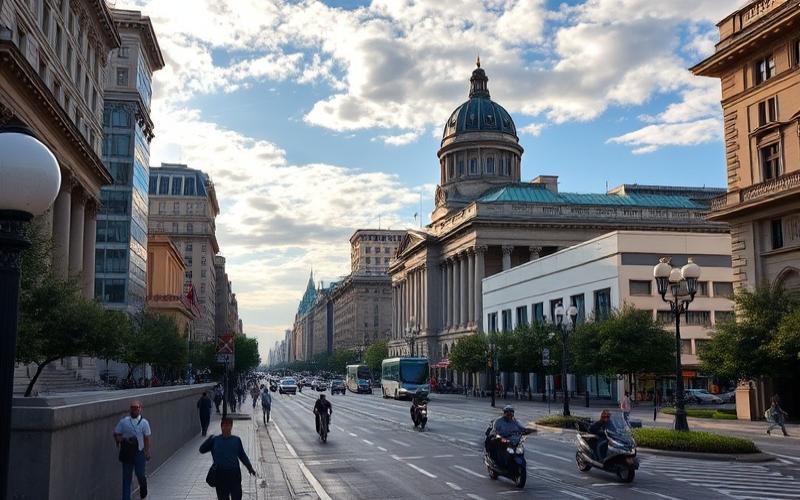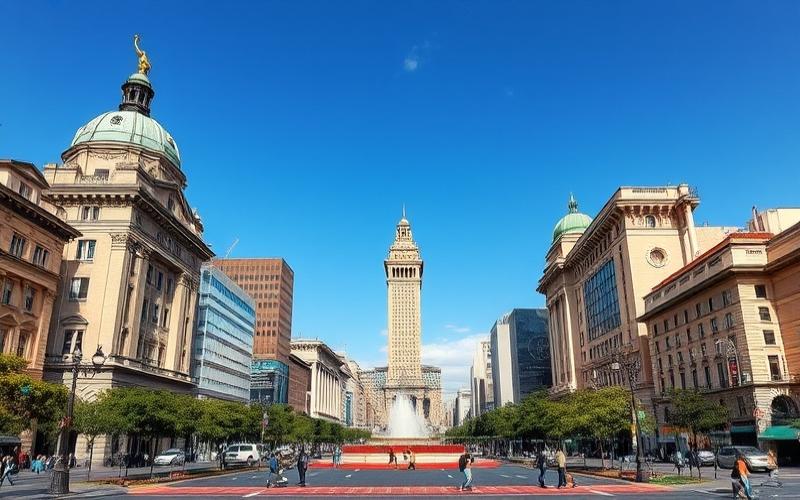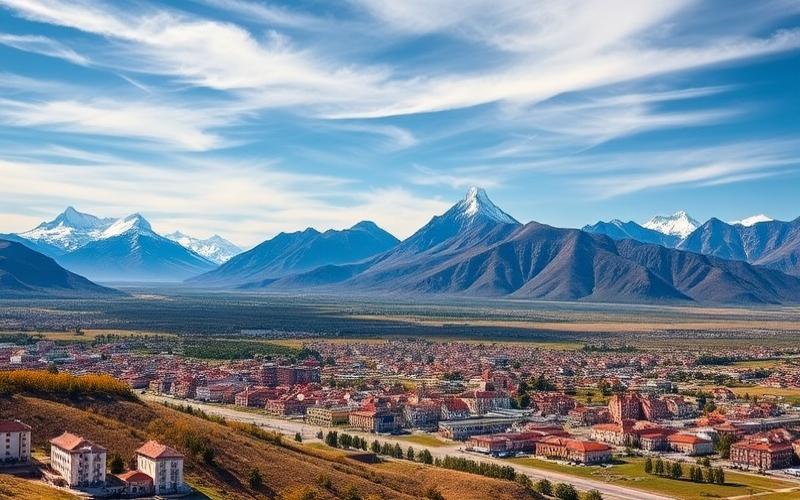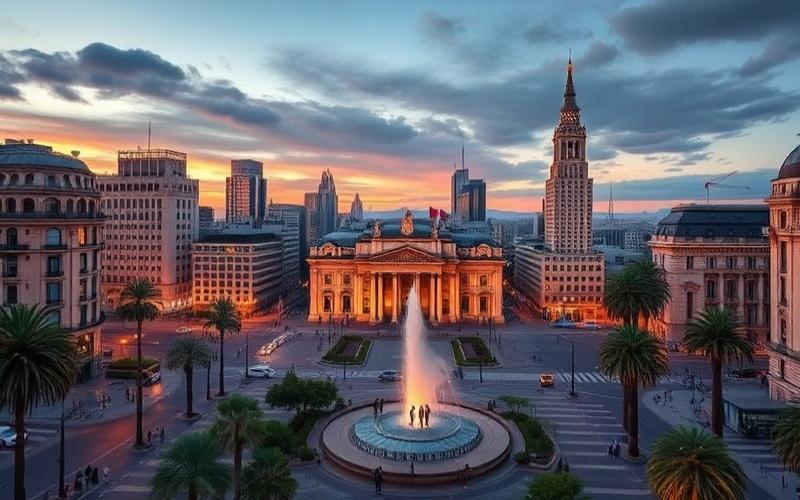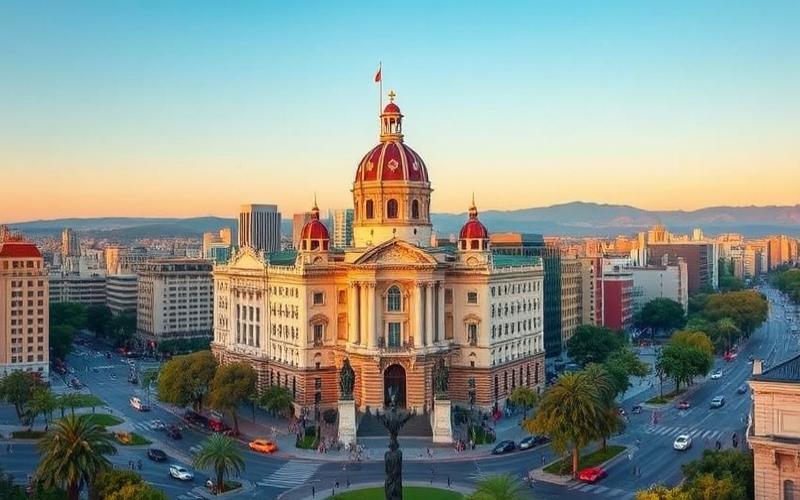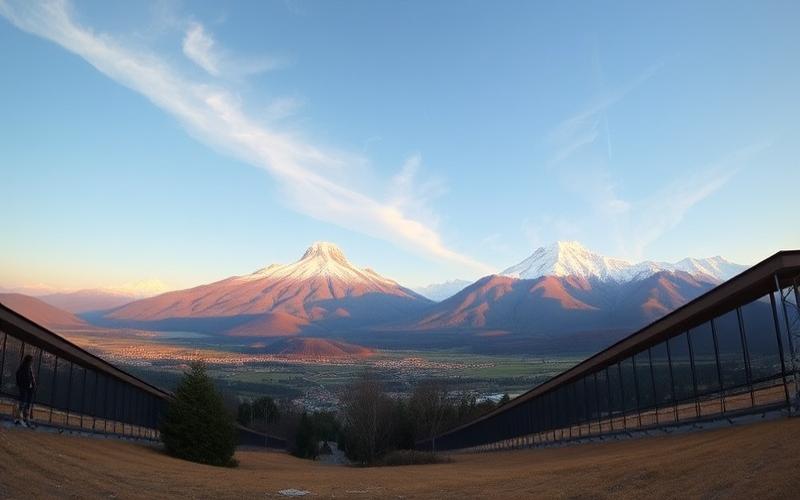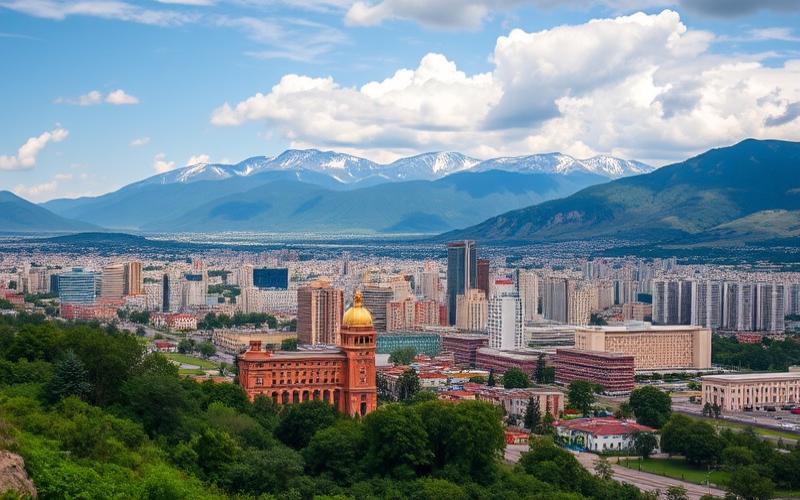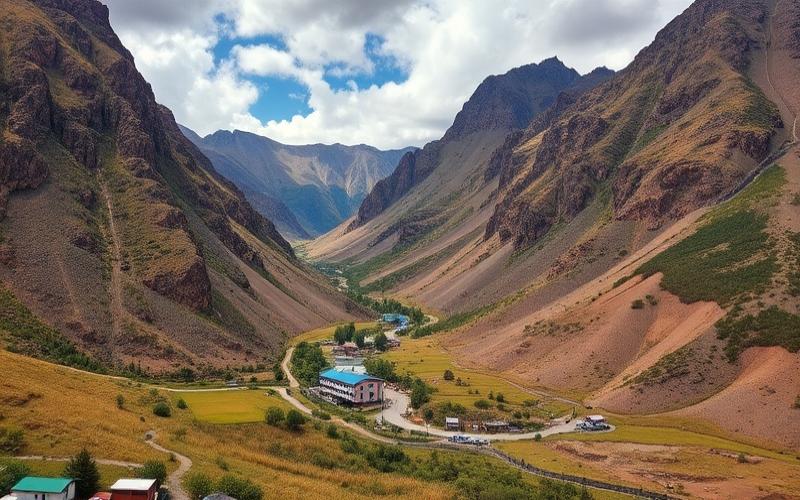
 Published on and written by Cyril Jarnias
Published on and written by Cyril Jarnias
Argentina, a country with multifaceted cultural dimensions, offers a rich and diverse religious landscape that profoundly shapes the daily lives of its inhabitants. For expatriates settling in this South American nation, understanding and adapting to local religious practices is essential for harmonious integration. This article will guide you through various aspects of religious life in Argentina, highlighting its impact on daily routines, major celebrations, and important considerations for expatriates.
The Impact of Religious Practices on Daily Life in Argentina
A Predominant Catholic Presence
Argentina is deeply marked by its Catholic heritage, with approximately 92% of the population identifying with Catholic tradition. Although regular practice is less common, with only 20% of believers attending services regularly, Catholicism’s influence remains omnipresent in Argentine society.
Visible Manifestations of Faith
In Argentine cities and towns, religious presence manifests tangibly:
- Churches and cathedrals adorn the central squares of every locality
- Religious symbols, such as crucifixes, are commonly visible in public and private spaces
- Streets often bear names of saints or important religious figures
Lifestyle Influenced by Religious Calendar
The schedule of religious holidays structures social and professional life in Argentina:
- National holidays related to Catholic celebrations, such as Easter or Christmas, are observed nationwide
- Certain periods, like Holy Week, may see reduced commercial and professional activities
- Sundays generally remain dedicated to family and rest, with reduced economic activity
Good to Know:
Even if you’re not religious, it’s important to consider the religious calendar when planning your professional and personal activities in Argentina.
Major Religious Holidays and Their Celebration in Argentina
Holy Week (Semana Santa)
Holy Week is one of the most important periods in the Argentine religious calendar. It is marked by:
- Impressive processions, particularly in Northwestern regions like Quebrada de Humahuaca
- The creation of ephemeral artworks called “Ermitas” in Tilcara
- Pilgrimages, such as the one to Punta Corral in Jujuy province
Christmas (Navidad)
Although less commercialized than in Europe or North America, Christmas remains an important family holiday in Argentina:
- Celebrations begin on the evening of December 24th with a family meal
- Midnight Mass (Misa de Gallo) is a tradition for many families
- Decorations and nativity scenes are common in public and private spaces
Feast of the Virgin of Luján
Celebrated on December 8th, this feast honors Argentina’s patron saint:
- A massive 65 km pilgrimage between Buenos Aires and Luján attracts thousands of faithful
- Special celebrations and masses take place throughout the country
Good to Know:
Participating in these celebrations, even as an observer, can be an excellent way to immerse yourself in local culture and build connections with your Argentine neighbors and colleagues.
Behavioral Codes and Adaptations for Expatriates
Respect for Local Traditions
Even if you don’t share local beliefs, it’s important to show respect for Argentine religious traditions:
- Avoid disrespectful comments about religion, even in private
- Dress appropriately when visiting religious buildings
- Respect silence and the atmosphere of reverence in places of worship
Participation in Religious Events
Participation in religious events can be an excellent integration opportunity:
- Accept invitations to family celebrations like baptisms or weddings
- Attend local festivals, even if you don’t participate in religious rituals
- Show interest in local traditions – this is generally appreciated
Managing Religious Differences
If you practice a different religion, it’s important to find a balance:
- Be open about your own beliefs if asked
- Seek communities of your faith to practice your religion
- Remain flexible and open-minded about cultural differences
Good to Know:
Religious tolerance in Argentina generally allows expatriates to practice their own religion without difficulty, while respecting local traditions.
Religious Freedom and Resources for Expatriates in Argentina
Legal Framework of Religious Freedom
Argentina guarantees freedom of worship in its Constitution:
- All religions are legally recognized and protected
- Discrimination based on religion is prohibited
- Public schools offer secular education, although Catholic influence remains present in some aspects of public life
Resources for Expatriates
For expatriates wishing to practice their religion in Argentina:
- Places of worship for various faiths exist in major cities like Buenos Aires
- International religious communities often offer services in different languages
- Expatriate associations can provide information about available religious resources
Celebrating Non-Local Holidays
For expatriates wishing to celebrate religious holidays not observed locally:
- It’s generally possible to negotiate arrangements at work to observe important holy days
- Expatriate communities often organize celebrations for important holidays of different religions
- Sharing your traditions with colleagues and neighbors can be an excellent way to promote mutual understanding
Good to Know:
Religious diversity is increasingly recognized and celebrated in Argentina, offering expatriates numerous opportunities to practice their faith while integrating into local culture.
Conclusion: Embracing Religious Diversity in Argentina
The religious experience in Argentina for expatriates is characterized by a unique blend of deeply rooted Catholic traditions and growing openness to spiritual diversity. Although Catholicism remains predominant and influences many aspects of daily life, Argentina offers a generally tolerant and welcoming environment for people of all faiths.
For expatriates, the key to successful integration lies in balancing respect for local practices with expression of one’s own religious identity. By adopting an open and curious attitude toward Argentine traditions, while remaining true to one’s own convictions, it’s possible to have a rewarding and harmonious experience.
The peaceful coexistence of religions in Argentina offers an inspiring model of tolerance and intercultural harmony. For expatriates, this diversity represents a unique opportunity to broaden spiritual horizons, cultivate empathy, and actively contribute to building a truly inclusive and multicultural society.
Disclaimer: The information provided on this website is for informational purposes only and does not constitute financial, legal, or professional advice. We encourage you to consult qualified experts before making any investment, real estate, or expatriation decisions. Although we strive to maintain up-to-date and accurate information, we do not guarantee the completeness, accuracy, or timeliness of the proposed content. As investment and expatriation involve risks, we disclaim any liability for potential losses or damages arising from the use of this site. Your use of this site confirms your acceptance of these terms and your understanding of the associated risks.




